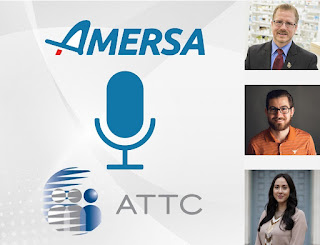Paul Bowman is an At Large member of the NIDA MA-HEALing Communities CAB. He serves as the HCS-MA national Steering Committee CAB representative. Paul has 30 years of experience working for the Commonwealth; he has lived experience, and he has been an advocate for people with substance use disorder (SUD) and stigma reduction. Paul has been the regional supervisor at the MA Department of Housing, served as the Chapter Director of MA National Alliance for Medication Assisted (NAMA) Recovery and NAMA Board of Directors member. Paul was Vice Chair of MA Department of Public Health’s Bureau of Substance Abuse Services (BSAS) Consumer Advisory Board. He is a Certified Methadone Advocate.
 Colleen LaBelle, MSN, RN-BC, CARN is the Director of the OBAT TTA program and the founder and director of Boston Medical Center's OBAT Clinic. She also serves as the Program Director of many related projects, including two Opioid Addiction Treatment Extension for Community Healthcare Outcomes (ECHOs) at BMC. Ms. LaBelle has over 30 years of experience treating HIV and addiction and over a decade of experience advising health care organizations on incorporating addiction treatment into their programs. She is a member of the Massachusetts Board of Nursing and Governor Charlie Baker's Opioid Working Task Force. In recognition of her work to improve and expand treatments for patients with addiction, Colleen received the 2017 Betty Ford Award from the Association for Medical Education and Research in Substance Abuse (AMERSA) and the 2016 Lillian Carter Exemplary Acts in Nursing Award from Modern Healthcare and the Lillian Carter Center for Global Health & Social Responsibility at the Emory University School of Nursing, among many others. She also received an honorable mention for the Gage Award from America's Essential Hospitals in 2016. Ms. LaBelle is board certified in addiction nursing and pain management, and she earned both her BSN and MSN from Grand Canyon University, in addition to a Diploma in Nursing from St. Elizabeth's School of Nursing.
Colleen LaBelle, MSN, RN-BC, CARN is the Director of the OBAT TTA program and the founder and director of Boston Medical Center's OBAT Clinic. She also serves as the Program Director of many related projects, including two Opioid Addiction Treatment Extension for Community Healthcare Outcomes (ECHOs) at BMC. Ms. LaBelle has over 30 years of experience treating HIV and addiction and over a decade of experience advising health care organizations on incorporating addiction treatment into their programs. She is a member of the Massachusetts Board of Nursing and Governor Charlie Baker's Opioid Working Task Force. In recognition of her work to improve and expand treatments for patients with addiction, Colleen received the 2017 Betty Ford Award from the Association for Medical Education and Research in Substance Abuse (AMERSA) and the 2016 Lillian Carter Exemplary Acts in Nursing Award from Modern Healthcare and the Lillian Carter Center for Global Health & Social Responsibility at the Emory University School of Nursing, among many others. She also received an honorable mention for the Gage Award from America's Essential Hospitals in 2016. Ms. LaBelle is board certified in addiction nursing and pain management, and she earned both her BSN and MSN from Grand Canyon University, in addition to a Diploma in Nursing from St. Elizabeth's School of Nursing.Nicole O’Donnell is a Certified Recovery Specialist, recognized by the Philadelphia Inquirer for excellence in patient care for her work at Penn Medicine’s Center for Addiction Medicine and Policy, which includes expansion of opiate use disorder treatment and engagement initiatives at Penn Presbyterian, Pennsylvania Hospital, and the Hospital of the University of Penn.

















